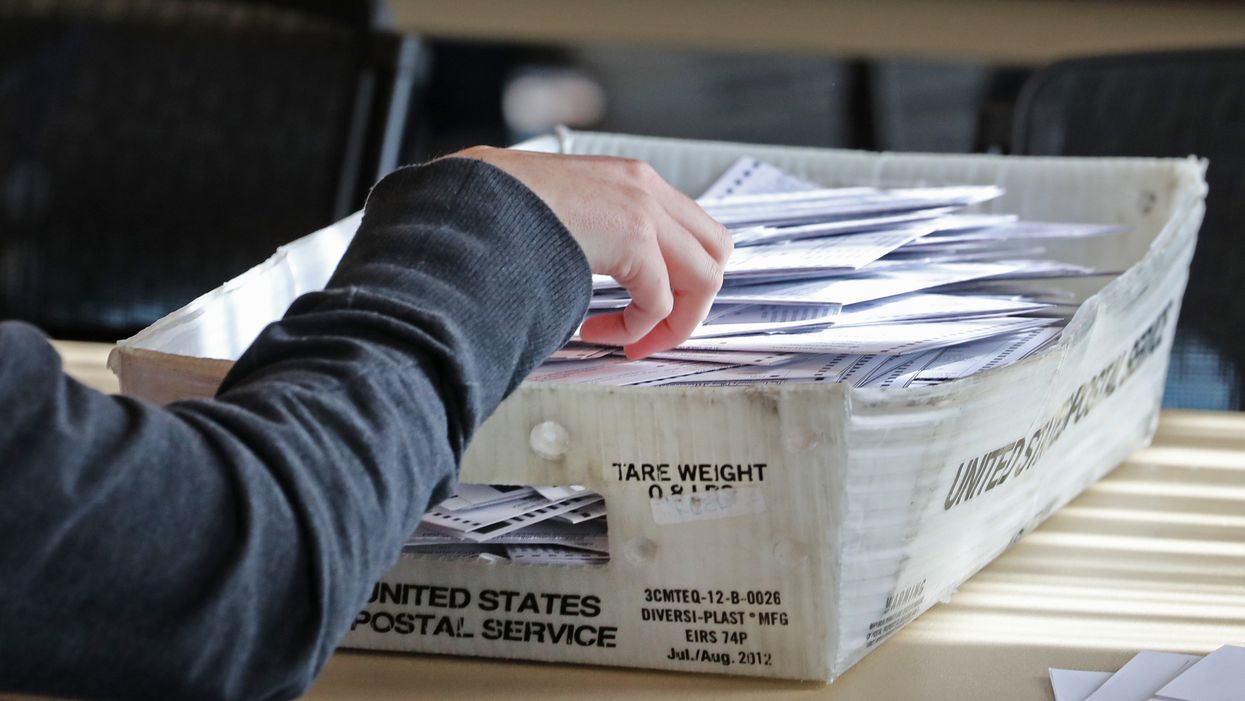Restrictions on the lives of Wisconsin voters because of the coronavirus require the state to permit registration and voting-by-mail to continue until the state's primary, Democrats maintain in a new lawsuit.
The Democratic National Committee and state party sued in federal court Wednesday, just before the deadline for registering online for the April 7 primary, the next major contest in the presidential race.
It's the latest in the wave of voting rights litigation brought by the Democrats in partisan battlegrounds from coast to coast in recent months, but the first contending that political rights are being improperly abridged because of the current nationwide public health emergency.
States across the nation are striving to hold primaries safely during the Covid-19 outbreak. Five have postponed their partisan contests so far and Wyoming has shifted to an entirely vote-by-mail presidential caucus April 4, when primaries in Alaska and Hawaii will also largely be conducted that way.
That leaves the Wisconsin primary three weeks from now as the next major election where, at least until recent days, most ballots were likely to get cast in person.
It's more problematic to delay than many of the earlier contests because, in addition to the 84 presidential convention delegates at stake, voters will also be asked to choose a justice for the state Supreme Court and to fill local offices including the mayor and county executive for Milwaukee, the state's biggest city. The terms of those local and judicial positions expire later in April, so the jobs would soon be vacant if the primary does not go forward.
Beyond that, leaders in both parties are eager to reassure voters about the safety of voting in states that are certain to be among the most intensely fought in the presidential race.
"Nobody should have to choose between exposure to Covid-19 and disenfranchisement," Wisconsin Democratic Party Chairman Ben Wikler said in a statement. "Our democracy depends on our ability to conduct free, safe, and fair elections, no matter what — even during a pandemic."
The lawsuit asks a judge to order April 3 as the new deadline for people to register to vote electronically or by mail — and to suspend the requirement that people provide a photo ID and some sort of proof of residency, such as a utility bill, in order to register.
As importantly, it asks the judge to extend the deadline for returning absentee ballots. They now must be in hand when the polls close on primary day. The Democrats say the court should permit voters to get them in the mail on primary day and have them counted if they arrive within 10 days.
As of Wednesday, 173,000 absentee ballot applications had been received by election officials statewide. That number is expected to increase dramatically before the April 2 deadline for requesting to vote absentee, as more and more voters conclude that staying away from groups of more than 10 people until the pandemic is under control means in-person voting is not the healthiest option.
The suit notes that Wisconsin residents, like all Americans, are being asked by health and political leaders to distance themselves from others to slow the spread of the virus.
Because of that, "many will be unwilling and unable to risk their safety and the safety of others by waiting in line to register to vote and cast their vote on election day," the suit argues. (Wisconsin has same-day voter registration.)
For the same reason, many Wisconsin residents may be unwilling to leave their homes to obtain and copy the documents they need to register to vote or to obtain an absentee ballot, the suit states.
In addition, the suit argues that many people rely on printers and scanners at their workplace to gather these documents.
This lawsuit was filed by Perkins Coie, the same firm that has brought more than two dozen claims on behalf of Democratic campaign committees contending laws and regulations in bellwether states are suppressing the vote. Democrats say they plan to spend tens of millions of dollars pressing these cases, and Republicans say they will spend millions defending measures they view mainly as appropriate defenses against fraud.
Late last year, Democrats were part of another lawsuit against Wisconsin election officials in an attempt to ease restrictions on college students voting where they are attending school.




















